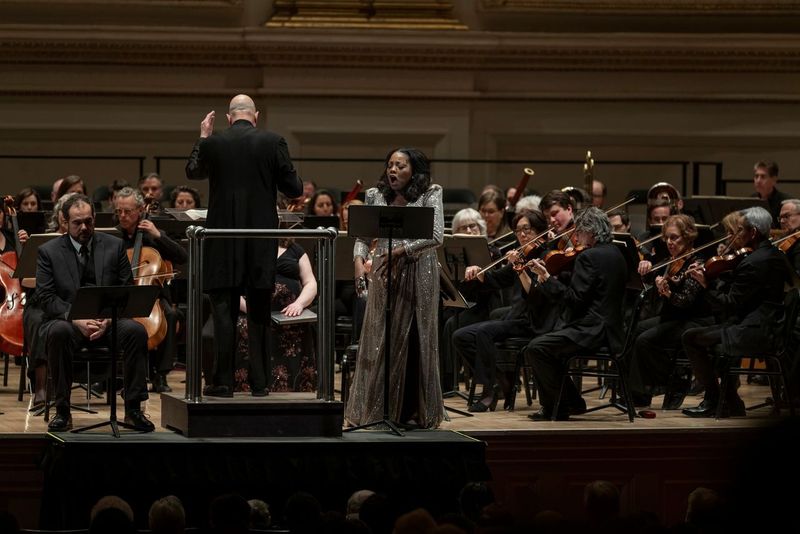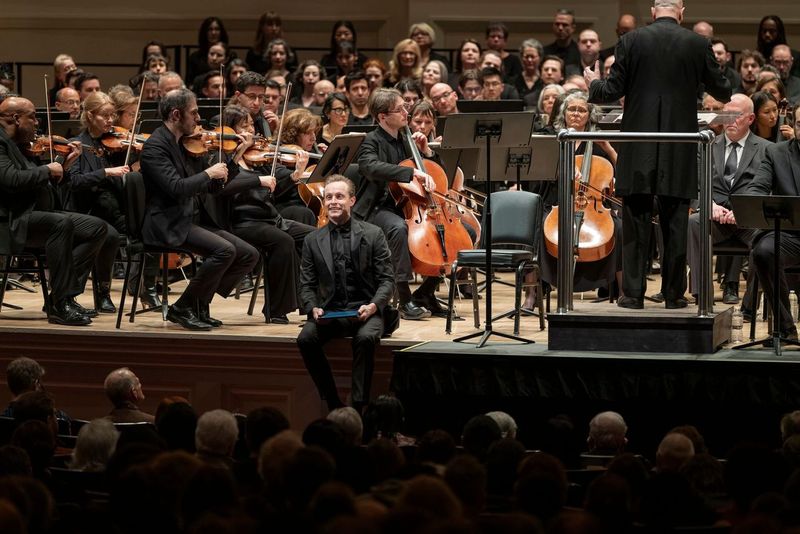Over the past generation, the polymathic conductor Leon Botstein has done much to promote large and obscure late-Romantic works. A recent sold-out performance of Arnold Schonberg’s Gurre-Lieder at Carnegie Hall attests to the devoted following he and the American Symphony Orchestra, which he has led since 1992, enjoy around New York.
In an engaging pre-concert talk, Botstein portrayed Schoenberg’s life as a tragedy. Like so many Weimar-era Jews, he sought to embrace German culture, only to be cast out when the country turned to Hitler. So, Botstein concluded, the Romantic excess of Gurre-Lieder was a failed effort to assimilate.
Perhaps. Yet a deeper truth is that Schoenberg’s inability to make something of Gurre-Lieder had already forced him into internal exile, two decades before the Nazi takeover. He realized sooner and better than most the futility of continuing in the grandiose Romantic tradition of Wagner, Mahler, and Strauss—a tradition that was collapsing under its own weight. By the time of Gurre-Lieder’s 1913 premiere, he had already moved on to a sparer and more atonal style that, he knew, would condemn him to stand “alone against a world of enemies” for the rest of his life. Always a man of principle, he sulked in anger backstage rather than acknowledging the audience’s enthusiastic ovation.

One can see why Schoenberg gave up. Clocking in at almost two hours, Gurre-Lieder checks every German late-Romantic box: a gargantuan orchestra and chorus of 350, a static libretto drawn from Norse mythology, an atmosphere of morbid mysticism, lovers singing (at great length) of their adulterous ecstasy, and a chorus of ghostly soldiers careening through the night. In latter sections, Schoenberg struggles to generate muster greater musical and dramatic impact with bombastic outbursts, lush harmonies, a jester’s ironic commentary, and an actor’s spoken narration—before giving up and ending with a blaze of C-major choral joy reminiscent of Haydn.
To avoid inducing confusion, boredom, and surfeit among listeners, a performance of Gurre-Lieder requires extraordinary Wagnerian singers able to soar above the thick instrumentation and a conductor and orchestra able to impose coherence on a difficult score. While noble in ambition and pleasing to the crowd, this performance ultimately fell short on both counts.
Overparting is commonplace in late-Romantic vocal performances today, but I have rarely heard musical malpractice as egregious as that committed by casting young tenor Dominic Armstrong as Waldemar. This role calls for a Heldentenor comfortable with Wagner’s Siegfried or Siegmund, while Armstrong’s vocal experience to date has been in a small part in Strauss’s Salome and as the light Steuermann in The Flying Dutchman. He sounded and looked uncomfortable throughout. To his credit, he struggled valiantly against the odds—quite intelligently exploiting various opportunities to make a creative interpretive impact. Yet mostly he struggled just to be heard, often in vain. I would welcome a chance to hear him in a more appropriate role.

Soprano Felicia Moore is a young and promising jugentliche dramatische soprano working her way up through small roles in major opera houses. She has enough vocal weight to be audible but not yet a full dramatic sound. Such voices often mature late, and one hopes that in years to come, more rapturous bloom at the top and resonance at the bottom may allow her to render a more colorful and characterful account of Tove’s adulterous love for Waldemar.
By contrast, those in smaller roles excelled. Tenor Brenton Ryan was an engaging Fool (Narr): he entered through the audience, seated himself informally on the lip of the stage, and ridiculed the proceedings in a focused character-tenor voice that penetrated without overpowering. In a scene midway through where the Wood Dove (Waldtaube) describes a queen murdering her husband’s lover—the dramatic turning point of the piece—mezzo Krysty Swann brought musical immediacy and dramatic passion often absent elsewhere, undermined only slightly by spotty German diction. Two bass-baritones, Alan Held as a Peasant (Bauer) and Carsten Wittmoser as the Sprecher (Narrator), dispatched cameos with veteran ease. The Bard Festival Chorale lent lusty support.
In the end, it fell to Botstein and the orchestra to bring overall coherence to the evening—an impossible task in a one-off performance. Their straightforward, if often overpowering, account deserves the partial standing ovation they received. Achieving more than that (let alone providing musical revelation) in this work requires copious rehearsal time, brilliant insights into the score, and a top virtuoso orchestra capable of playing at faster tempos and with a greater range of color.
Hard-core Schoenberg-lovers seeking to round out the sesquicentennial of the composer’s birth year in style might take note of two performances of Gurre-Lieder in December in Los Angeles. The LA Phil under Zubin Mehta (a conductor with a proven track-record with this work) has assembled as strong a cast of Wagnerian heavyweights as one can find nowadays (Christine Goerke, Brandon Jovanovich, Violeta Urmana, Gerhard Siegel).
Andrew Moravcsik
Leon Botstein, conductor
Dominic Armstrong, Waldemar
Felicia Moore, Tove
Krysty Swann, Waldtaube
Alan Held, Bauer
Brenton Ryan, Klaus Narr
Carsten Wittmoser, Sprecher
Bard Festival Chorale
James Bagwell, Music Director of the Bard Festival Chorale
American Symphony Orchestra
Carnegie Hall, 22 March 2024
All photos by Matt Dine.